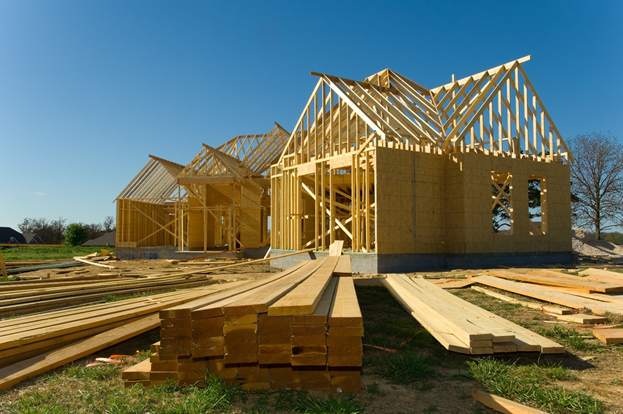Finding a home that meets or exceeds your wants and needs can be a challenging proposition in a normal market, but in an extraordinarily strong seller’s market, finding the right home can seem impossibly difficult. A combination of high demand and low inventory has led to where the market is today. Not only are prices rising, but interest can regularly result in bidding wars. Whether you’re a first time homebuyer looking for somewhere to finally call your own, or an experienced homeowner looking to find a home that can more adequately address changes in lifestyle, this tight market can make you feel like giving up the search.
There is an alternative, however, and one that could actually help you get even more for your money. New construction homes are popular even in more typical market conditions, giving buyers access to the most modern features and floor plans, often in attractive locations and up-and-coming communities. When previously-owned inventory is at an all time low, new construction could be one of your best options. Assuming you have a timeline that can allow for the construction to be completed, taking this route can lead to you being able to custom tailor your new home to your wants and needs. Special requests and additions can be cheaper in new construction than with existing homes, while also decreasing the potential problems associated with buying a used home such as age and wear.
The very best suggestion is to choose to work with a seasoned, licensed realtor PRIOR to meeting building contractors. Most don’t realize that choosing to work with a realtor when buying a home – whether new construction or existing home – doesn’t cost the buyer any money. When you choose to work with a licensed real estate agent for a new construction home, it could actually save you thousands as you glean the benefit of the experience and expertise of the real estate agent.
While new construction can be a very good option and should be considered by anyone seriously considering a new home purchase in the current market, there are some factors you should consider before signing anything and investing in a new construction property.
What is the actual timeline for construction? Construction projects can lead to a lengthy wait before you’re able to take delivery of your new home. Is this wait something you can manage? Do you have access to an intermediary residence while you wait for work to be completed? While developers may provide estimates on when a project will be completed, sometimes outside factors can cause delays. Estimates are not written in stone, and there are many ways a project can be delayed through no fault of those doing the work. Inclement weather can put a pause on construction. If the project is delayed a few weeks or a month, regardless of reason, will you still have somewhere to stay? Keep this in mind as you talk with those managing the construction.
- Is your completion date affected by the sale or occupancy of other units or phases? Just because construction has been completed for your particular home, doesn’t always mean it’s time for you to move in. Some developments have contingencies that could further delay you moving in.
- What is included in the base unit and what are the additional costs for custom add-on options? While the freedom to choose some features on a new construction can be appealing, it can also add substantially to the final price of the home. The cost of additions for a home still under construction can be lower than retrofitting the same changes to an existing home, but it’s important to still carefully access the value of any additional-cost items included in the purchase.
- How will an area change once construction is completed? When buying a new construction, it’s important to remember that areas can change over time. Traffic, on both roads and on footpaths, can increase as the number of residents increases, and the surrounding area becomes more heavily developed with commercial spaces. A quiet neighborhood today could become feel far more crowded by the time your new construction is completed. Be sure to check for development plans in the local news or with the developers themselves. These changes can be both positive and negative. Look for new roadway projects that could bring additional road noise to the area, while also providing easier access to major roads or common destinations. While not all changes can be predicted, keep these factors in mind when rating the livability and likability of a given new construction neighborhood.
- Be Aware of Future HOA (Home Owner’s Association) Rules and Fees. HOA fees must be considered when deciding whether a new construction home is within your financial means. Rules associated with HOAs must also be factored in- certain changes to your home may be restricted in the future depending on what rules are in place.
For those trying to compete in this tight seller’s market, it could be time to buy new. Developers are offering some great incentives in this climate, and it can be a great alternative for those with a little time to wait.


